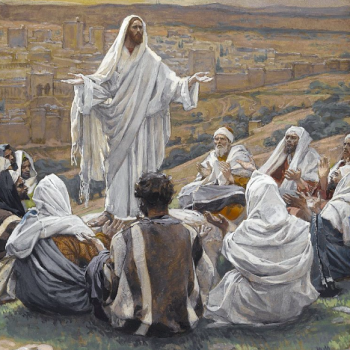Editors' Note: This article is part of the Public Square 2014 Summer Series: Conversations on Religious Trends. Read other perspectives from the Pagan community here.
The true bible is the book of nature, the wisest teacher the one who most plainly expounds it, the best priest our own conscience, and the most orthodox church a hall of science. . . Let us call ourselves by what names we will, are we not creatures occupying the same earth, and sharing the same nature? And can we not consider these as members of one family?. . . . My friends, I am no Christian. . . I am neither Jew nor Gentile, Muslim nor Theist; I am but a member of the human family. ~ Frances Wright, Reason, Religion and Morals (1829)
The popular speaker, abolitionist, and freethinker who wrote the heretical words above was a powerful voice in the early 19th century. She inspired Susan B. Anthony and Elizabeth Cady Stanton and led Walt Whitman to call her "one of the best women in history though also one of the least understood."
But what of the endangered planet of the 21st century? How do these words of an early American leader speak to the severe challenges of our current global environment? Standing alongside Thoreau and Muir, Burroughs and Roosevelt, Rachel Carson and Janine Benyus, in the freethought tradition of Thomas Paine and Walt Whitman, Wright offers a solution to our self-destructive path. But most of us won't like the solution or the cure.
In a nutshell (eggshell or turtle shell), here is what I find stunning about the wisdom of these naturalistic reformers: they call us to love this world and no other. They beckon us back from ages of heaven-mindedness and distractive spiritual speculation, back to earth, back home. We can't "save" this world until we save ourselves from other worlds.
We protest. We can't believe our ears, our eyes, our sensible reason. How could we let go of spiritual things? Billions around the green globe believe in something or someone beyond, behind, above the Cosmos, the natural universe. It's in our DNA, isn't it? We would be lost without adding a Super to Nature!
Would we?
I am not merely offering a secular solution to our serious global crisis. What I am suggesting is what Frances Wright was suggesting one hundred eighty years ago: We're all a human family. The divisions don't help. We have to come back to our senses. Spirituality is only useful when there is radical interrelationship across all borders.
In a recent article in the New York Times, Thomas Friedman describes the struggle between Religion and Nature in the Middle East ("The Real War of Ideas," June 11, 2014). Borders are becoming more fluid as extremist factions seek to reshape the political landscape in their own image, in the name of their god. The land is suffering too, a microcosmic mess and mirror for the world to see. Friedman presents one image that immediately startled me.
The one place where the Persian leopard still survives today is on the Iraq-Iran border, which is still forested with land mines, "so hunters can't go there." And while occasionally a leopard tragically steps on a mine, the minefields have so limited human activity that nature has again flourished there.
Think of the minefields, both in mountains and minds.
The Iraqi voice and Friedman's own voice echo a little of Frances Wright:
"The real problem is water. . . The majority of the world think Iraq is oil, desert and war," Alwash explained. "My Iraq is the snow-capped mountains of Kurdistan and the majestic valleys that take the water and soils of these sacred mountains down to southern Iraq. If we are what we eat, we Iraqis are all made from the minerals of the mountains of Kurdistan—Kurds, Shia, Sunnis, Yazidis, Turkmen and Christians."
Friedman concludes,
The environmentalists start with the "commons" and try to get everyone to think about what they share. The extremists start with "exclusion" and try to get everyone to think about whom they fear. The Eastern Mediterranean will have a future only if the 'ism' it opts for is environmentalism—not pan-Shiism, Sunnism, Turkism, Kurdism or Islamism.
And maybe not your ism, or mine.
John Muir was a person of faith, though his God of Beauty cannot claim him for any religious camp. Muir was very uncomfortable with the distractions of faith. His words challenge us to try a new trail. In My First Summer in the Sierra (1911), Muir wrote,




